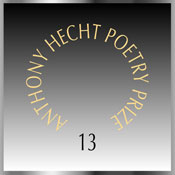Christopher Cessac

 Winner of the 13th annual Anthony Hecht Poetry Prize
Winner of the 13th annual Anthony Hecht Poetry Prize
Judge: Andrew Motion
Christopher Cessac was born in 1967 in Corpus Christi and grew up in South Texas. He studied literature and history at Texas A&M, law at the University of Michigan Law School, and poetry at Johns Hopkins University. He has worked as a writer, musician and lawyer. He lives now in Toronto. His first poetry collection, Republic Sublime, won the Kenyon Review Poetry Prize. He is also the author of Eros Among the Americans, a chapbook, and his poetry has appeared in The Antioch Review, Black Warrior Review, Cimarron Review, Drunken Boat, Kenyon Review, Poetry Daily, Rattle, and elsewhere. One of his poems introduces Rio Grande, an anthology of prose edited by Jan Reid and including work by Larry McMurtry, John Reed, Américo Paredes, Woody Guthrie, Molly Ivins and others.
Two poems from Christopher Cessac’s The Youngest Ocean
Six Characters in Search of an Author in the Wal-Mart Parking Lot
The day begins as parody of a day beginning.
Our children gather for the arts (martial
as usual). I still know how to find a good deal
of trouble. Confusing life with plot and how
to construct a decent one. The descent one makes
into fictions: this lust-filled convenience of on and off
ramps as we roam village to village in search
of necessities: a bargain on bliss or at least good
beer. Bare of music, waiting in the wings, still
no script with parts for us, half-heartedly rubbernecking
with my herd, the last good music I heard
left me and that was it. What is it you do?
See how sometimes I please and/or harm others?
That’s all I do.
Christopher Cessac
Poetics in the Suburban
Parked. Idling. Oblivious to the weather
or whether the crops are in, what the factories
are paying, when the troops are returning. Aristotle
would understand. These moments are hard won
and fragile. A little selfish space to dwell
on the precious—iambs (a life?), the introduction
of scenery (this parking lot?), the difference
between Comedy and Tragedy (“the comic mask
is ugly and distorted, but does not imply pain”).
This is the natural order of things. To cower,
at times, from all responsibility, to give
the heart a rest as smooth as sleep. To wake
and find the lot is full, the vultures circling,
pained expressions, coveting my space.
Christopher Cessac
